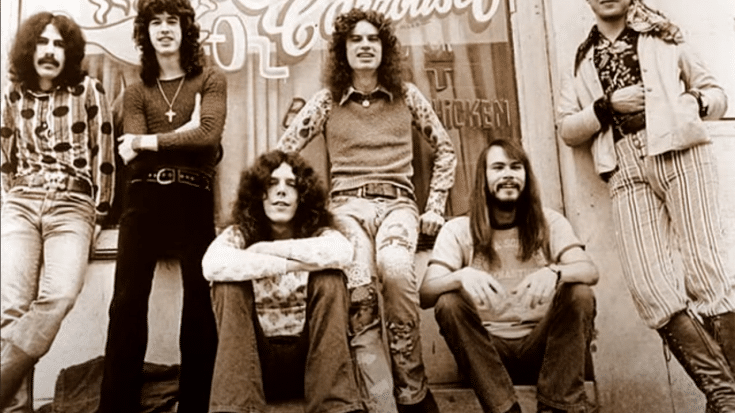6 Forgotten Classic Rock Bands of the ’70s Worth Rediscovering

via Deep Track Zach / YouTube
While legendary musicians rose to prominence and their names continue to reverberate through the annals of music history, some bands, despite their enormous skill, failed to get the recognition they so well deserved.
Little Feat
Little Feat stands as a unique blend of talent and creativity, largely thanks to its founding member, Lowell George. George wasn’t just any musician; he was a prodigy with a penchant for the refined intricacies of West Coast jazz, which was a stark contrast to the popular rock ‘n roll tracks of his time. His musical journey took a significant turn when he became part of Frank Zappa’s Mothers Of Invention, contributing to some of the band’s most acclaimed works. This experience, though it ended in a split, had a profound influence on George’s musical direction.
When he formed Little Feat in 1969, it was clear that the band was set to redefine the rock genre. With a foundation rooted in Zappa’s avant-garde style, Little Feat introduced a unique sound characterized by complex compositions, a sharp wit, and the ability to transcend musical boundaries seamlessly. From rock to blues and funk, they mastered it all with unmatched precision. Despite the tragic loss of Lowell George in 1979, the band’s legacy, particularly their work from the ’70s, continues to be a rich source of inspiration and enjoyment for music lovers.
Wet Willie
Wet Willie may sound like an unusual name, but this band from Mobile, Alabama, brought serious musical talent to the southern rock scene of the ’70s. Their signature hit “Keep On Smilin'” climbed the charts, yet their legacy extends far beyond this single accomplishment. With seven albums released in the decade, their music showcased an effortless fusion of funky Southern rock that rightfully earned them a spot as one of the era’s standout acts, often sharing the stage with giants like The Allman Brothers Band.
The soulful voice and saxophone skills of founding member Jimmy Hall were central to Wet Willie’s distinct sound. Their music was a rich tapestry, weaving together influences from the soulful Stax records to the bluesy rock of bands like The Rolling Stones. Despite not achieving the same level of fame as some of their peers, Wet Willie’s contribution to the music of the ’70s remains invaluable, offering a collection of tracks that capture the spirit and talent of the era.
Warhorse
Warhorse’s story is a fascinating glimpse into the world of rock music that didn’t hit the mainstream radar despite its remarkable potential. Founded by Nick Simper after his departure from Deep Purple, Warhorse had a promising start with their debut album under Vertigo Records. Unfortunately, neither their first album nor its singles captured the commercial success they hoped for. Following their second album, “Red Sea,” they found themselves without a label, marking the beginning of the end for the band.
Warhorse’s music was characterized by a powerful blend of heavy rock elements and melodious compositions, creating a sound that was both dynamic and captivating. Their use of organ and keyboards added a unique flair to their songs, setting them apart from many of their contemporaries. Despite the struggles with label support and lineup changes, Warhorse’s limited discography stands out as a lost treasure of the rock genre, deserving of a closer listen.
Sir Lord Baltimore
Brooklyn’s own Sir Lord Baltimore was a band ahead of its time, laying the groundwork for what would later be known as stoner rock and heavy metal. Mentored by Mike Appel and featuring the unique setup of a drumming lead vocalist, the band made a strong impression with their debut album, “Kingdom Come.” Their follow-up records continued to push musical boundaries, yet, bafflingly, they couldn’t sustain the initial momentum, eventually parting ways with their label.
Bolder Damn
In the crowded rock scene of the 1970s, Bolder Damn emerged from Fort Lauderdale with a sound that could make even Black Sabbath take notice. Their sole album, “Mourning,” received critical acclaim upon its release, showcasing a band with a knack for spectacular live performances and a talent for both musicianship and songwriting. Unfortunately, the draft into the US Army of key members led to a premature end for the band, cutting short what many believed could have been a significant legacy.
Third World War
Third World War was not just a band; they were a statement, embodying a raw, unfiltered expression of working-class angst and political radicalism. From their formation in 1970, their mission was clear—to produce music that was as provocative in its message as it was in its sound. Their refusal to conform to mainstream expectations ultimately limited their commercial success but solidified their status as punk precursors.


















